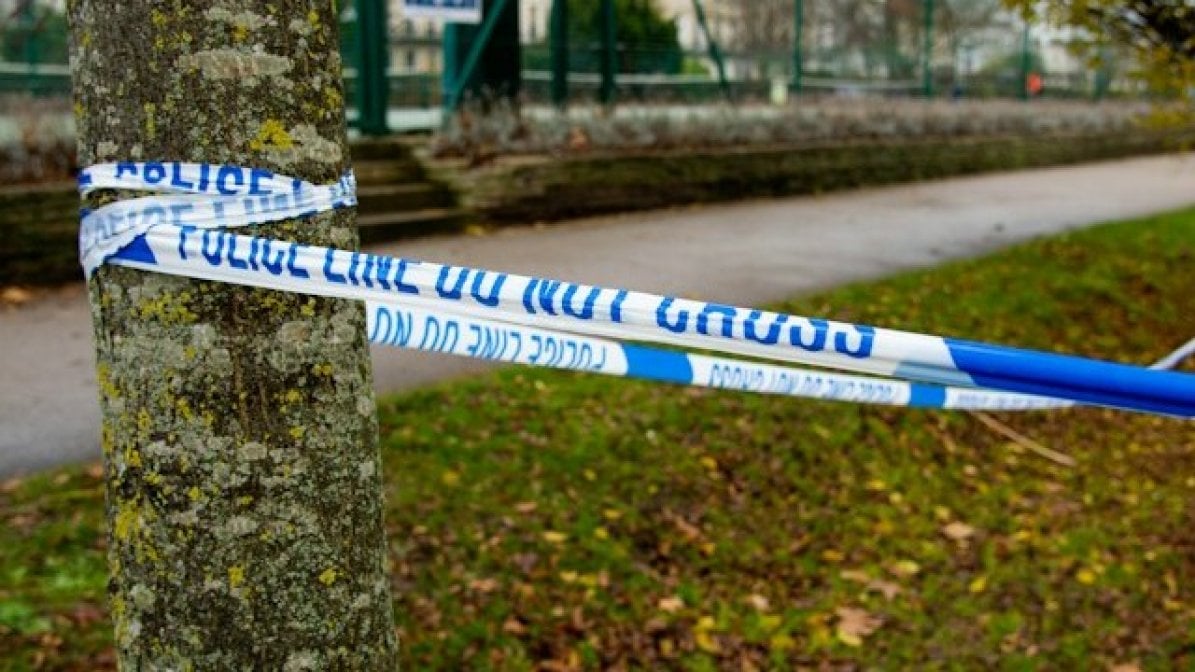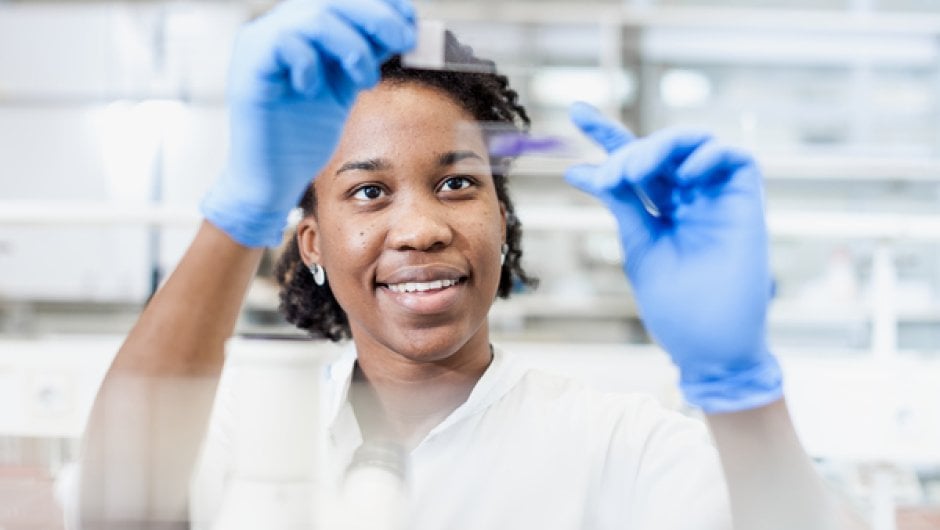If you study forensic science, you’ll be taught biosciences and criminal psychology in specially-made crime scenes, and learn about the latest technologies for things like DNA, fire, and explosives analysis. You’ll also learn about how to prepare evidence for court.
You could end up working in a medical school or research department, public health lab or a company that deals in a specific area of forensic science, like fire investigation. You can work your way up to chartered status as a forensic practitioner, specialising in one area of forensics, and/or being employed as an expert witness. You could also progress to being a casework examiner, supervising others and conducting research and articles.
It’s a competitive but potentially rewarding career. You’ll also need some resilience when dealing with potentially bloody or gruesome crime scenes.
The impact you could make
- Get under the skin of a notorious criminal to understand the psychology behind their behaviour, and better analyse the evidence that will convict them.
- Give evidence in court that will bring about justice for the victims of a crime.
- Use your degree to become a crime scene investigator or a detective.
What you could study
- Organic and inorganic chemistry
- Physical chemistry
- Practical chemistry
- Molecular and forensic genetics
- Essential skills in forensic science
- Human anatomy and physiology
- Psychology and criminal behaviour
- Forensic biology
- Fire analysis
- Interpretation and presentation of forensic evidence
Example module
Example assignment
Subjects it's useful to have studied first
Some forensic science courses or apprenticeships will have requirements for previous qualifications in certain subjects. Entry requirements vary, so always check with the provider.Chemistry
Biology
Physics
Maths
Hard skills you'll develop
- Scientific techniques
- Laboratory work
- Crime scene investigation
- Collection, examination, and interpretation of evidence
Soft skills you'll develop
- Project and time management
- Analytical thinking
- Presentation
- IT skills
- Data management
Careers: Where it can take you
Find out more about your career prospects from studying forensic science. The following information is based on a typical biological scientist role.Available jobs
Average salary
Career options
Forensic science
Forensic scientist
Crime scene investigator
Police
Laboratory work

What is a… ballistics expert?
You may or may not have heard of a ballistics expert, but they undergo specific training to learn how to examine and analyse evidence from firearms and other ammunition that can be used in criminal investigations. As a ballistics expert you’ll look at bullet holes, shell casings, and firearms residue, as well as analysing things like how a shot was fired and from what direction. You’ll collect, analyse, and prepare your data for use in court, likely working alongside other experts and investigators from the police and other agencies.
Find your ideal career
Take our careers quiz to find your ideal job matched to your personality type.Getting in: Entry requirements
Find out more about what you'll need to study forensic science at university or as an apprenticeship.
Average requirements for undergraduate degrees
Entry requirements differ between university and course, but this should give you a guide to what is usually expected from forensic science applicants.
A levels
Scottish Highers
Vocational

Health and science apprenticeships
Check out our guide to help you decide if an apprenticeship might be the right choice for you.Other subjects you may be interested in
Considering an apprenticeship?
Applying for an apprenticeship is just like applying for a normal job. Here’s what you need to know:-
1
Deadline
Apprenticeships don't follow the same deadlines as applying to uni, the deadline is down to the employer. -
2
Where to apply
You apply directly through the employer. -
3
No limits
You're not restricted to one apprenticeship application; you can do as many as you like. -
4
Apply to university and apprenticeships
There's nothing stopping you applying to university through UCAS, while also applying for apprenticeship vacancies. -
5
Find out more
Let's talk about... science apprenticeships (Sponsored by Manchester Metropolitan University)

Apprenticeships vacancies
Check out live apprenticeship vacancies in health and scienceExplore further
Go deeper into topics around forensic science with the following:-
1
Medicine, Science, and the Law
Use this official journal for the British Academy of Forensic Sciences (BAFS) to learn about research and forensic practice and understand current issues in the field of forensic science. -
2
Forensic Files
Listen to this podcast, which looks into infamous deaths and legal cases, examining the role of forensic detention in solving crimes. -
3
CSI: Crime Scene Investigation
For a fun, dramatised version of what it ‘might’ be like to be a crime scene investigator, there are 15 series of this television programme to choose from. -
4
Crime Scene Investigator live experience
For a taste of what it ‘could’ be like to solve a crime scene mystery, take a look at this interactive game.
Application advice
Whether it's personal statement tips or what to write in a cover letter for an apprenticeship application, our advice will help you get ahead in your forensic science journey.Skills, experiences, and interests to mention
- It’s hard to get work experience inside a forensic science lab, but where else have you had experience, and what did you learn? Have you been in a hospital or science lab? When have you conducted experiments of your own, or learned somewhere how to analyse and evaluate results?
- Show you understand the industry by referencing resources you’ve looked at or read, and what you’ve gleaned from them. Where do you see yourself ending up, and what attributes do you have that would lend themselves to a role like that?
- What hobbies do you have that might illustrate your patience and ability to concentrate? Maybe a craft like knitting or crochet, model-building, or something else with fine motor skills and attention to detail?
- How can you demonstrate you work well as a team, and individually? Think about work situations you’ve been in, sports you play, or projects you’ve done at school.


